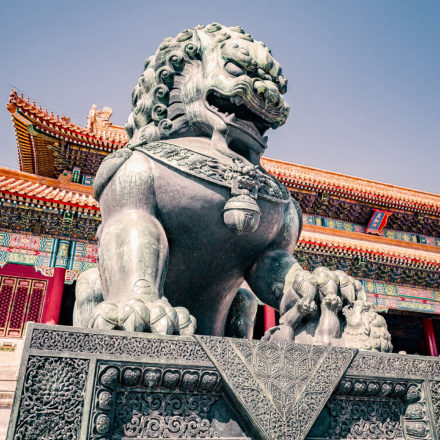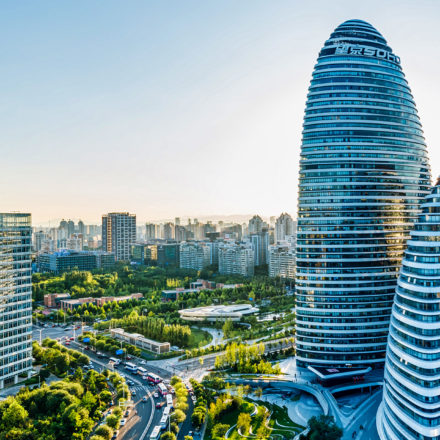Boao hosted its 23rd annual forum for Asia from 26-29 March. Officially known as the Boao Forum for Asia (BFA) Annual Conference 2024, held in a historical fish village in Hainan Province in south China, this year it attracted around 60 participating countries.
For the second year, KWM international director David Olsson was on the ground as a delegate. Here, we share his takeaways from the wide mix of informed intelligence and insights on China and regional economies, climate change, the environment, clean technology, AI, EVs and more (flick to the end for more background on the BFA and check out our ‘need to know’ post on the topic).
Some 2,000 regional leaders, government officials, businesspeople and experts in various fields came together for the Davos-style event promoting regional economic integration and collaboration.
From Asia’s role in driving growth and innovation in sustainability, to managing the rise of artificial intelligence (AI) and financing the energy transition, the BFA focused on key development challenges facing countries in the Asian region and the world.
The theme this year was ‘Asia and the World: Common Challenges, Shared Responsibilities’. David, tell us – given the economic uncertainty that pervades global business news – what was the ‘vibe’ at the BFA?
I’d sum it up by saying that the sentiment was overwhelming positive, but tempered by a pragmatic understanding of the challenges facing the world today.
Sluggish economic growth, complex international relations and the need to address the climate crisis provided the backdrop to discussions, but I did sense that regional leaders have a growing sense of confidence in their ability to manage the future.
The message from leaders – in China, regionally, globally – was clear and simple: It’s only through cooperation and collaboration that we can we meet the challenges, and take advantage of opportunties.
Fortescue Metals CEO Dino Otranto summed it up well when he said, in the context of efforts to efforts to address the challenges posed by climate change:
It’s difficult, but not impossible. There is no choice any more – collaboration and partnerships need to supersede geopolitical tensions.
At a personal level, what made the Forum great was that it brought together some of the best China policy and business leadership from China, ASEAN and many other countries, Australia included, to brainstorm, share insights, and collaboratively devise strategies to address the world’s pressing issues.
I was impressed by the effort everyone made to move from ‘talking’ to ‘doing’.
Across all the sessions, speakers proposed and debated solutions to address the challenges facing China in particular, and the world in general. They included boosting investor confidence; improving the investment ecosystem, enhancing foreign investment attractiveness, advancing financial cooperation in Asia and strengthening industrial and supply chain cooperation.
Asia is expected to contribute 60% of global GDP growth this year – led by China. How did this flavour discussions?
Asia’s role in driving global growth was a dominant theme. Asia remains the most dynamic and promising region in the world and a growing destination for foreign direct investment. In clean power, for instance, more than half of the global investment in the sector was in Asia last year.
The mainstay of Asia’s growth will continue to be China which, on any account, will continue to be a significant contributor to global economic growth in the years ahead. Its policies and actions have far-reaching implications for the world economy.
At the opening plenary China’s top legislator Zhao Leji highlighted China’s commitment saying:
China aims to be a strong driving force for the world economic recovery this year, opening its markets wider to foreign investors and promoting high quality growth.
China’s import and export of goods is expected to exceed US$32 trillion in the next five years, according to Zhao.
Zhao also promised greater openness in China’s markets for foreign investors, with a further reduction of the “negative list” of sectors prohibited or restricted for investment from foreign companies without special approval.
His parting thoughts: “Investing in China is investing in the future”.
AI in some ways dominated tech discussions in 2023 – what is happening in this space?
How nations manage the rise of Artificial Intelligence was a big theme.
I really enjoyed these sessions. AI and its applications are evolving at lightning speed, and speakers from China and elsewhere highlighted for me the extraordinary change that AI is driving across societies everywhere. I’m not sure most of us are anywhere near sufficiently conversant with the change that AI is driving, but the presentation and the sessions laid out the issues in a clear and thoughtful way.
Australia’s Mathias Cormann, the Secretary General of the Organisation for Economic Cooperation and Development (OECD), was one of many speakers that highlighted the importance of international collaboration and legal and governance frameworks to maximise the benefits of using AI across countries.
Innovation seemed to feature in a number of panel sessions and in speeches (including CEOs) – how is it driving sustainable growth?
There was broad consensus that INNOVATION is essential for sustainable development.
Different sessions addressed this in different ways, but consistent themes and proposals emerged.
Leveraging innovation and technology to drive sustainable development was a recurring theme. Participants explored ways to harness technological advancements for positive impact.
Encouraging investments in projects that promote environmental conservation, social progress, and economic prosperity was emphasised. These investments contribute to long-term sustainability.
Addressing the debt crisis was a crucial aspect of sustainable development. Participants discussed measures to prevent and manage debt-related challenges.
Accelerating actions to combat climate change was a priority. Climate friendly policies, renewable energy adoption, and sustainable practices were discussed.
Speakers from China spoke about innovation in the context of plans by Beijing officials to use “new productive forces”, to drive China’s latest investment priorities. There’s no textbook definition of this phrase but, in essence, this is about developing capabilities in high tech, AI, bioscience and other ‘high-level’ industries that are different from traditional manufacturing and which will allow China’s growth to ‘move forward on a different kind of level.’
Across the panel sessions there were examples of new and significant technological breakthroughs and innovations in China that illustrate this policy direction.
China’s dominance in the development of technologies related to new energy, like photovoltaics, wind power and energy storage is the standout example. Across panels discussions touched on new thinking and fields such as big data, AI, IoT, biomedicine, green finance, new energy, integrated power grids and new materials.
The discussions were not only limited to how China was innovating. Australia’s Andrew Forrest, for example, outlined his plans for decarbonise the hard-to-abate steel industry and partnerships to place Australia as a world-leading exporter of ‘green iron ore.’
The takeaway for me was that while there is no written guideline for innovation, we can learn from one another and learn by doing.
Sharing experiences and inspiring ideas will spur innovation across the region.
You worked on an interesting report on the collaboration opportunities in the journey to net zero – how can working together play a part in meeting challenges?
The topic that pervaded all sessions of the forum was COLLABORATION as a foundation for addressing climate change and accelerating the transition to low-carbon economies.
Transitioning to green electricity, low-carbon and zero-carbon solutions is crucial for sustainable growth as well as the well-being of future generations.
As noted by Andrew Forrest:
China has shown the world how to build renewable energy assets at scale, it has shown us how to drive down the cost of renewable energy, and it can show us how to use them.
In Asia, the need for energy transition finance is particularly acute – you’ve noted this in the past; how will the region approach this challenge?
Currently, the region is off course in delivering its 2030 climate targets. Asia still produces 85 per cent of its energy from fossil fuels and accounts for more than half of global carbon emissions.
The global transition finance gap stands at around US$4 trillion per year. To plug that gap, speakers noted that is vital to have transparent frameworks that ensure funds are being channelled in a way that supports broader net-zero objectives.
ESG investing and financing is now firmly into the mainstream. Asia’s regulators are defining transition finance principles that should induce greater transparency, with many speakers highlighting the need for international standards, such as carbon pricing and carbon tax, as tools for green finance.
How about Australia’s role in the forum – can you share your insights, particularly given your role as the President of the Australia China Business Council?
The forum highlighted the importance of COLLABORATION among governments, businesses, and civil society. Partnerships can amplify efforts towards sustainable development goals.
Australia’s participation centred around the Australia China Business Leaders Forum, which put a spotlight on the crucial role of green development in the socio-economic growth of both nations.
The dialogue was interactive and well informed, with a willingness to work more closely together to support Australia’s energy transition.
Topics discussed ranged from the importance of building a resilient clear energy supply chain, including the potential for the development of down-steam processing capabilities in Australia and training institutes to support upskilling of an Australian work force for future-facing industries.
I was pleased to speak to a proposal to advance Australia’s competitiveness in the region by positioning itself as the Green Economy Development Zone for the countries participating in RCEP region. Australia and China are both signatories to the Regional Comprehensive Economic Partnership (RCEP) trade agreement – the world’s largest trade agreement, and which is focused on the ASEAN region.
A tangible outcome of the dialogue was a commitment to write to the leaders of both nations to endorse the need a framework for a comprehensive engagement between China and Australia around addressing the climate challenge and for facilitating a coordinated engagement program. Not only would it affirm a shared deep concern about climate change, but it would provide a basis for concrete, sector-specific business, scientific and academic collaboration.
The highlight for me was to see that Australian and Chinese companies are steadfast in their ambitions for energy transition, and partnerships are superseding some of the potential geopolitical tensions.
Recent improvements in bilateral relations have given companies in both nations greater confidence in seizing trade and investment opportunities in the market.
My concluding remark was:
If we put climate collaboration at the centre of our efforts, Australia and China already have a strong track record of innovative collaboration that can ensure that the low carbon economy is the new frontier for Australian and Chinese companies to cooperate and to innovate in the year ahead.
For some background – the BFA has been regularly held since 2001 – how does it work and who was there this year?
The BFA is a non-governmental and non-profit international organisation that seeks to be a platform for dialogue, an exchange of ideas, and a forum for the creation of solutions.
Over 4 days, there is a constant round of major addresses, panel sessions, private meetings, dinners, and receptions, as well as opportunities to chat more informally over a coffee or meal with business leaders, government officials and thought leaders from around the region and the world. Boao runs multiple concurrent sessions so it’s impossible to attend everything.
The panel discussions were arranged around four major topics: the global economy, social development, international cooperation, and technological innovation.
An emphasis this year was on the importance of collective responsibility and the power of international collaboration in fostering sustainable development.
Zhao Leji, who chairs the Standing Committee of the National People’s Congress was the most senior Chinese leader this year and delivered the keynote speech at the opening Plenum, and there was a good representation of leaders of states and international organisations.
This year, there was no official Australian government delegation but Australia was well represented by Australia’s new Ambassador to China, Scott Dewar, Austrade CEO Xavier Simonet and other diplomats and government officials who supported an Australian business delegation organised by Dr Andrew Forrest AO which participated in the Australia China Senior Business Leaders Forum.
Andrew Forrest, Executive Chairman Fortescue and Li Ruogu, President, China International Economic Relations Association, were (as in past years) the co-chairs of this annual senior level roundtable.
And finally – your thoughts on taking part (and looking to the year ahead!)?
For my part, it was wonderful to have had the opportunity to connect once again with some of the leading business leaders in China and the region, as well as some clients and all those accompanying the Australian roundtable dialogue.
Key note speakers set the tone for discussions, but the more intimate panels sessions and roundtables were the highlight for me, involving people who know what they are talking about, who are genuinely curious and whose insights add nuance and complexity to our collective understanding of China, and its changing role in the region.
There was plenty of debate and varying perspectives, especially geographically and from the view of the developing world, but all was done with respect, and with a pragmatic realisation that the pathway ahead must involve more, not less, collaboration.
At a time when views on China have become so polarised, so lacking in nuance, it was so good to pause, breathe and listen.
For more, see related insights:








